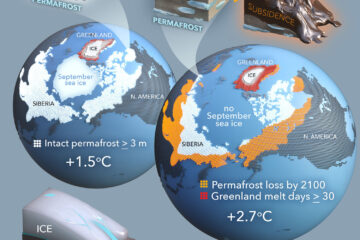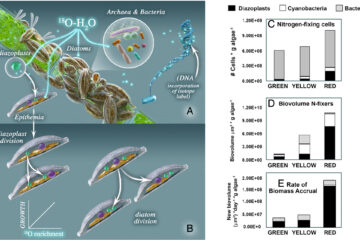Winter warming in Alaska accelerates lignin decomposition contributed by Proteobacteria
In a warmer world, microbial decomposition of previously frozen organic carbon (C) is one of the most likely positive climate feedbacks of permafrost regions to the atmosphere. However, mechanistic understanding of microbial mediation on chemically recalcitrant C instability is limited; thus, it is crucial to identify and evaluate active decomposers of chemically recalcitrant C, which is essential for predicting C-cycle feedbacks and their relative strength of influence on climate change. Using stable isotope probing of the active layer of Arctic tundra soils after depleting soil labile C through a 975-day laboratory incubation, the identity of microbial decomposers of lignin and, their responses to warming were revealed.


